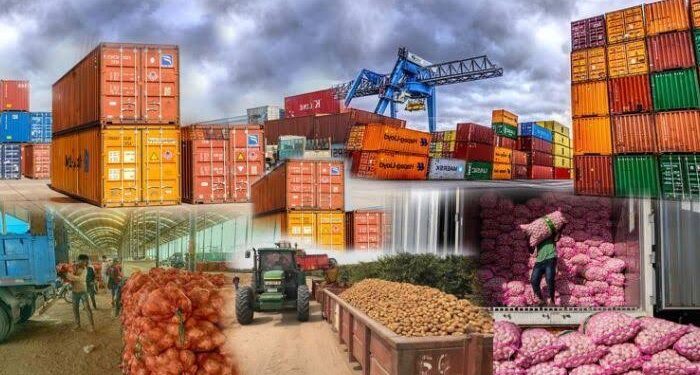By Emmanuel Nduka
The Africa Export and Import Bank (Afreximbank) has announced that Africa’s exports grew by 10% in 2024, reaching $682 billion, despite slower growth in many of its major trading partners.
In its African Economic and Trade Outlook 2025 report, titled “African Resilience in a Changing World Order,” Afreximbank highlighted that the increase in exports was largely driven by the stabilization of commodity prices, a marked improvement compared to the volatility seen in recent years.
The bank noted that after recovering from the pandemic’s low trade levels, Africa’s goods trade hit a record high in 2022, totaling $1.407 trillion. However, in 2023, Africa’s trade slowed by approximately 6%, mainly due to tighter monetary policies and a highly uncertain global environment. The year 2024 saw a rebound, with trade growing by 5.8%, returning to the levels observed in 2022.
Despite a slowdown in trade with major partners such as China and Europe, Africa’s exports rose by 9.8% while imports increased by 2.4%, totaling $719 billion. This improvement helped narrow Africa’s trade deficit to $37 billion in 2024, a significant reduction from $80 billion in 2023.
Afreximbank also highlighted that oil-exporting countries like Algeria, Angola, and Nigeria benefited from relatively stable global crude oil prices in 2024. After a price surge in 2022 driven by the Russia-Ukraine conflict, followed by a moderation in 2023 due to a global economic slowdown, oil prices in 2024 were more balanced, supporting strong export earnings for these nations.
Inflation Trends Across Africa In 2024
The report also revealed that West Africa experienced the highest inflation increase on the continent in 2024. Since 2020, inflation across Africa has remained in the double digits, driven by supply chain disruptions, rising oil prices, geopolitical tensions, and expansionary monetary policies.
West Africa’s inflation rate rose from 20.6% in 2023 to 21.4% in 2024, while Northern Africa saw a more modest increase of 0.7 percentage points, reaching 18.5% from 17.8%. On the other hand, Southern, Central, and Eastern Africa experienced disinflation in 2024. Southern Africa saw a notable decrease, with inflation falling from 38.9% in 2023 to 20.1% in 2024, mainly due to effective inflation control measures in Zimbabwe. Central Africa saw a decline of 2.1 percentage points, dropping from 10.5% to 8.4%, while Eastern Africa’s inflation eased slightly by 0.3 percentage points.
The ongoing depreciation of African currencies against the US dollar was a contributing factor to high inflation in several regions, compounded by extreme weather events that disrupted agricultural production and further drove up prices across the continent.

































